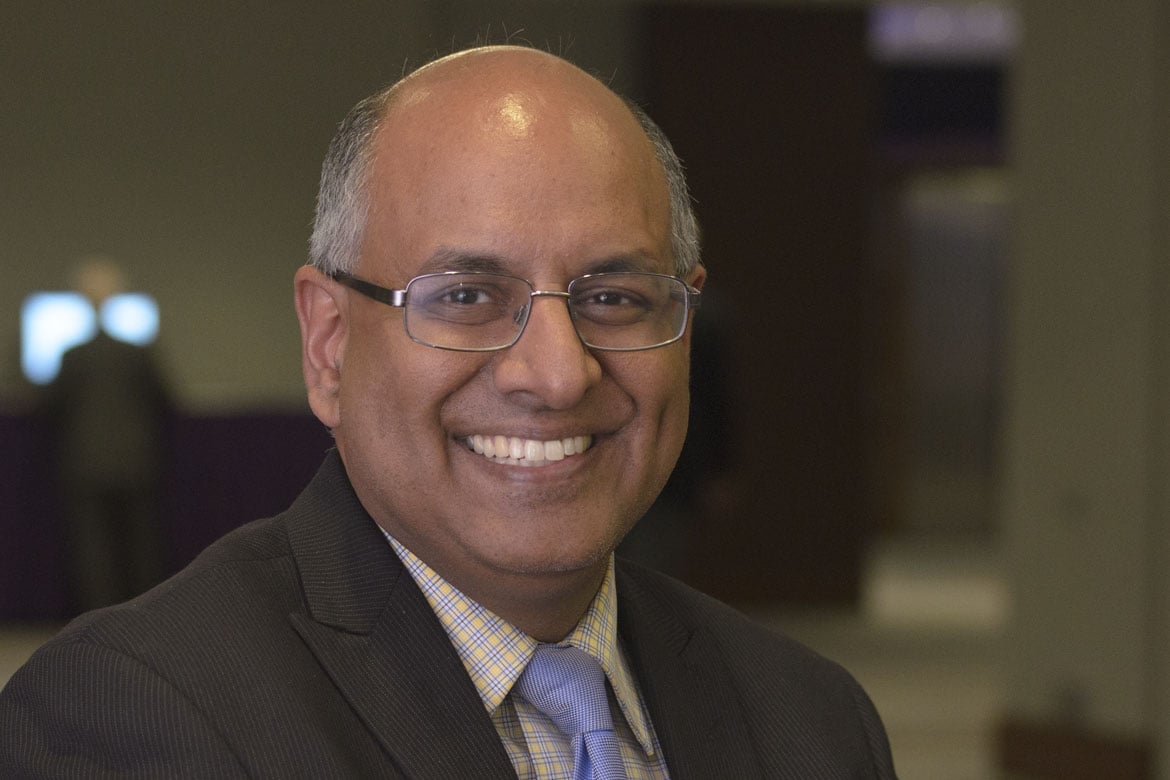It is critical to equip physicians-in-training with the skills to lead so they can succeed in all practice environments, said an expert panel at a recent education session.
“Leadership is for everyone who graduates,” said Rajesh S. Mangrulkar, MD, associate dean for medical student education at the University of Michigan Medical School. “Everyone can have those capabilities. We are not talking about titles and roles. We are talking about a way of being with other people and a way of enacting change. I think that’s what we want for every physician graduate in this country.”
Dr. Mangrulkar was among seven experts participating in an AMA Council on Medical Education panel discussion at the 2017 AMA Annual Meeting. Presentations detailed leadership education techniques across the continuum of medical education as well as models of leadership development and interprofessional development. Among the panelists was Modena Wilson, MD, MPH, senior vice president, senior vice president, chief health and science officer at the AMA.
From the ground up
In discussing the importance of creating tomorrow’s leaders in undergraduate medical education, Dr. Mangrulkar was one of many presenters who highlighted that physicians should be agents of change in medicine. That work, Dr. Mangrulkar believes, begins at the individual level.
“There is a sense of security with oneself that is required to be an effective leader,” he said. “Security doesn’t mean ‘I’m going to be comfortable with who I am and not change.’ It’s a sense that I’m open to changing and I’m open to listening and engaging. But that’s not going to make me insecure in really intense interactions that are required when you’re leading change. So there’s an openness that is a fundamental core value of being a good leader.”
To encourage this, Michigan is working on practical leadership training through coaching, and that isn’t necessarily a celebration of an instructor’s victories. The school conducts a series of panel discussions called “leaders in worst”—a play on a lyric in Michigan’s fight song—in which instructors talk about their failures in leadership and how they grew from them.
“Our students have found that be very valuable,” Dr. Mangrulkar said. “It’s the start of conversations about how do we interact, how are we role models for each other? How do we coach each other? How are we open to coaching and to being different?”
At the graduate level, the Leadership for Urban Primary Care Education and Transformation (LUCENT) at the University of Chicago is aimed at developing skills for primary care leadership among residents, fellows and faculty members. University of Chicago internal medicine professor Deborah Burnet, MD said the program has a large focus on population-health management. Trainees within LUCENT can pursue elective work that includes partnerships with organizations such as the Chicago Medical-Legal Partnership for Children and the Chicago Department of Public Health.
Benefits of collaboration
Most accrediting bodies for training programs in health care require some sort of interprofessional education. The reality that professionals in medicine can learn from one another is one that educators are embracing. It also might signify a shift in mindset for some physicians.
“We get in to medicine and succeed in our training programs very singularly,” said Andrea L. Pfeifle, EdD, the director of interprofessional practice and education at Indiana University School of Medicine. “We have to demonstrate that we have the knowledge and the competence to succeed in our training programs on our own. And then we want our students and our residents to learn how to depend on others. There’s a disconnect there that we are beginning to think through and understand.”
Interprofessional teams also create an opportunity for leadership at all levels.
“One person shouldn’t always be the leader,” Pfeifle said during her presentation. “It should be the person who is most suited to move patient care forward. Sometimes that’s the doctor, or the nurse or a social worker or a pharmacist. Sometimes it’s a more fluid form of leadership. That’s a different way of thinking about it.”
Models outside of medicine
In some instances, examining what works in non-medical fields can prove beneficial in medicine. During a presentation on leading in business, Joshua Klayman of the University of Chicago Booth School of Business, highlighted some of the principles that have enabled success in corporate leadership.
Those lessons can prove valuable. At Michigan, for instance, medical students are also learning from the university’s Ross School of Business.
“We’re working with the business school on understanding one’s own values and how they compete with each other and compete with others, and how diversity of your skillsets are really critical for a team,” Dr. Mangrulkar said.
“One of the great things is that if you are in a university like Michigan, we have these resources,” he said. “We just have to walk outside of our doors to find them.”
Read more news coverage from the 2017 AMA Annual Meeting.




